A Concise History
of Modern Europe
A Concise History
of Modern Europe
Liberty, Equality, Solidarity
Second Edition
David S. Mason
Rowman & Littlefield Publishers, Inc.
Lanham Boulder New York Toronto Plymouth, UK
Published by Rowman & Littlefield Publishers, Inc.
A wholly owned subsidiary of The Rowman & Littlefield Publishing Group, Inc.
4501 Forbes Boulevard, Suite 200, Lanham, Maryland 20706
http://www.rowmanlittlefield.com
Estover Road, Plymouth PL6 7PY, United Kingdom
Copyright 2011 by Rowman & Littlefield Publishers, Inc.
The views or opinions expressed in this book, and the context in which the images are used, do not necessarily reflect the views or policy of, nor imply approval or endorsement by, the United States Holocaust Memorial Museum.
All rights reserved . No part of this book may be reproduced in any form or by any electronic or mechanical means, including information storage and retrieval systems, without written permission from the publisher, except by a reviewer who may quote passages in a review.
British Library Cataloguing in Publication Information Available
Library of Congress Cataloging-in-Publication Data
Mason, David S. (David Stewart), 1947
A concise history of modern Europe : liberty, equality, solidarity / David S. Mason. 2nd ed.
p. cm.
Rev. ed. of: Revolutionary Europe, 17891989.
Includes bibliographical references and index.
ISBN 978-1-4422-0533-8 (cloth : alk. paper) ISBN 978-1-4422-0534-5 (pbk. : alk. paper) ISBN 978-1-4422-0535-2 (electronic)
1. EuropeHistory17891900. 2. EuropeHistory20th century.
3. EuropePolitics and government17891900. 4. EuropePolitics
and government20th century. I. Mason, David S. (David Stewart), 1947 Revolutionary Europe, 17891989. II. Title.
D299.M359 2011
940.2'8dc22
2010043621
 The paper used in this publication meets the minimum requirements of
The paper used in this publication meets the minimum requirements of
American National Standard for Information SciencesPermanence of Paper
for Printed Library Materials, ANSI/NISO Z39.48-1992.
Printed in the United States of America
For Katie, Lizzy, and Mariah
Preface to the Second Edition
It is gratifying that this book is being used in so many universities around the country, and evidence, I think, of the need for a short history of modern Europe. One reviewer of the first edition praised the text for its brevity, voice, and value, so the publisher and I have tried to maintain those virtues in this second edition. It is still, I believe, the shortest and least expensive text on modern Europe, and one of the few written by a single author.
Besides minor revisions, the main changes to the text are in the later chapters. Some of these are bringing the material up to date, but there is also new material on decolonization, the expansion of the European Union (EU), and contemporary issues of immigration, ethnicity, and nationalism. These, among other factors, have challenged Europe and the evolving project of the EU. New problems, like the contraction of the global economy, also pose threats, but in spite of these challenges, the accomplishments of Europe are impressive, and its prospects bright. The EU has steadily expanded and integrated, bringing almost the whole of the continent into close and peaceful interdependence. After almost a century of war, Cold War, and division, Europe has emerged as a global economic and diplomatic power.
This second edition has benefitted from the encouragement and advice of numerous friends and colleagues. Susan McEachern, senior editor at Rowman & Littlefield, prompted me to undertake the task, with her always cheerful support, careful attention, and good advice. Carrie Broadwell-Tkach, assistant editor at the press, helped guide me through the revision process, which is sometimes more difficult than writing the thing the first time around! Four outside reviewers for the pressRobert Givens of Cornell College, Sandi Cooper of the College of Staten Island and The Graduate School-CUNY, Matthew Lungerhausen of Winona State University, and Cynthia Kosso of Northern Arizona Universityall provided detailed and helpful suggestions for revisions of the book. I was also able to prevail on many friends and colleagues, many of whom use the book in their own courses, for suggestions for revisions and additions in this edition: Guy Wells, Paul Hanson, Bruce Bigelow, Tiberiu Popa, Fred Yaniga, Bob Bennett, Bob Dale, and Brian Murphy. I hope that all of these people will find this second edition to be new and improved; if not, it is my fault, not theirs!
Preface to and Acknowledgments
for the First Edition
I have tried to make this book interesting and accessible and to provide the basic contours of modern European history in a manner that does not overwhelm the reader with details. The book is written with a specific audience in mind: college undergraduates with little previous background in the subject. The project arose from a need at my own university for a short introduction to European history for a university-wide core course that focused on the tension between tradition and change at key points in world history, including Europe since the French Revolution. The main challenge of writing this book was the effort to synthesize and abbreviate the history of a big region during a period of much change. It is a testament to this challenge that few short histories of Europe are available to the general reader. So, in a book like this one, half the length of most standard histories of modern Europe, there will inevitably be omissions and oversimplifications. In this, I hope I do not offend the amateur and professional historians among you.
Many people have contributed to the conceptualization, revisions, and editing of this bookmany of them connected with Butlers core curriculum program. Professors Aron Aji, Bruce Bigelow, and Paul Valliere all encouraged me to undertake this task, and Jennifer Knerr and Susan McEachern at Rowman & Littlefield encouraged and supported the project in many ways. The following friends and colleagues all contributed valuable feedback and suggestions on one or more of the chapters in this volume: Paul Hanson, Bruce Bigelow, Siobhan McEvoy-Levy, Steve Perrill, Dick Miller, Mary Chalmers, Bill Walsh, Jon Porter, Paul Valliere, John Cornell, Antonio Menendez, Bill Watts, and Erica Tuckerall at Butler; and Steve Webb of Wabash College and Don Raleigh at the University of North Carolina. Professor Alex Dracobly at the University of Oregon provided many helpful criticisms and suggestions as an outside reviewer for Rowman & Littlefield. My students Brooke Boeglin and Alissa Wetzel helped enormously in providing feedback on the clarity and readability of the text, providing research assistance in finding maps and illustrations, and developing the timeline and the glossary. Elizabeth Barrett, the former program coordinator for Butlers Change and Tradition course, provided expert editorial corrections and suggestions. My father, Richard S. Mason, also read and provided feedback on early versions of the text. My wife, Sharon, read some sections of the book, too, and was always helpful and patient when I was working through the myriad issues that come with book writing. I incorporated many of these peoples suggestions, but not all of them, so any remaining errors are entirely mine.
Introduction
Change and Tradition in Europe
The first edition of this book began with 1789 and ended with 1989, precisely two hundred years later. This second edition brings the story forward another two decades, although those two years are still anchors for the book. Like all dates and periods in history, these are somewhat arbitrary but these two years, 1789 and 1989, mark signal events in European history, arguably the two most important years in that continents history. The first is the year of the French Revolution, which overturned the monarchy in France (albeit temporarily), institutionalized the ideas of the Enlightenment, and unleashed the forces of nationalism, revolution, and democracy all over Europe. The second is the year in which communism collapsed in Eastern Europe through largely peaceful popular revolutions that brought down one communist regime after another in the course of only about six months. These Eastern European revolutions stimulated the fragmentation and collapse of the Soviet Union two years later, with the consequent end of the Cold War conflict that had dominated international relations (and much of life in both the East and the West) since the end of World War II. The ending of the division of Europe between Eastern and Western, communist and capitalist, allowed for further movement toward unity and integration in Europe, marked by the expansion of the EU from fifteen countries to twenty-seven by 2007. What Napoleon had tried to achieve by force of arms after the French Revolutionthe unification of Europe under the revolutionary principles of liberty, equality, and fraternitywas achieved two centuries later through peaceful and mass protests and global economic integration.

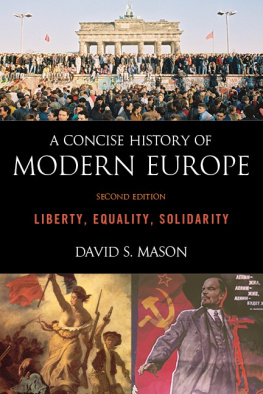
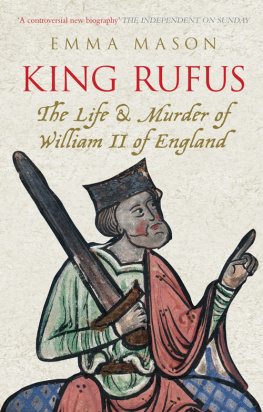

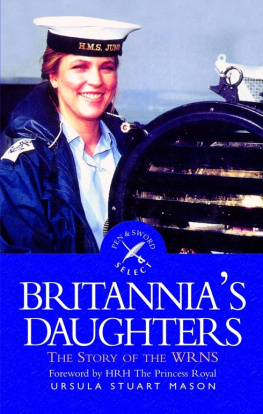
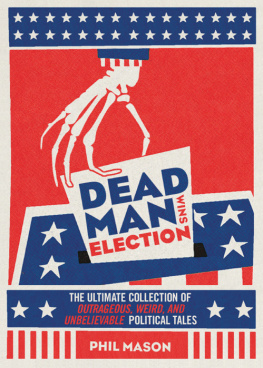
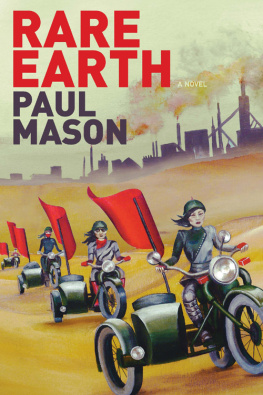
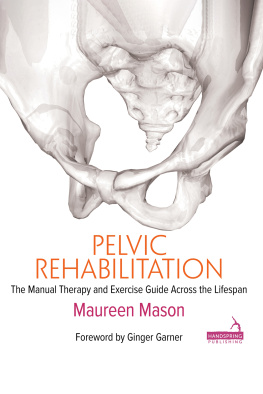
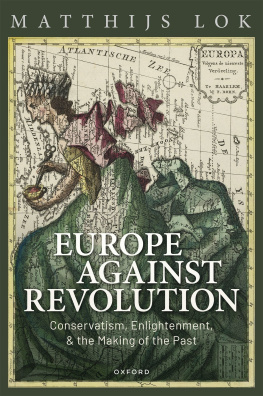
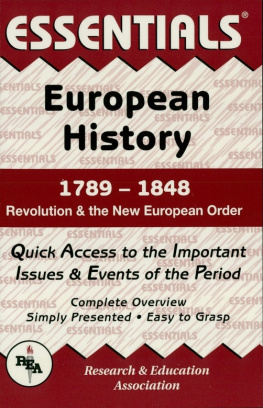
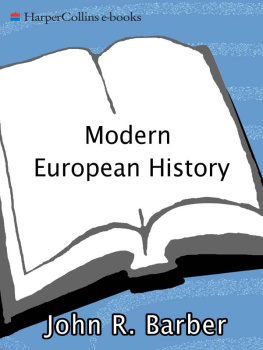
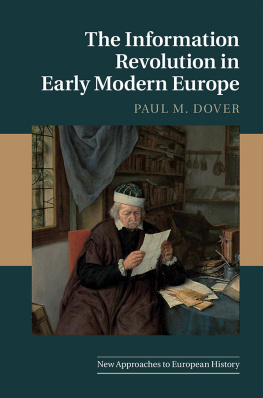


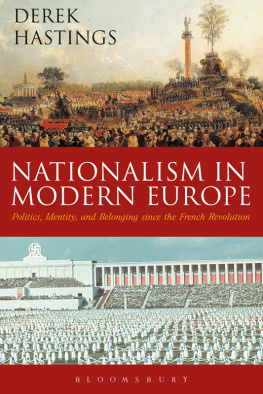
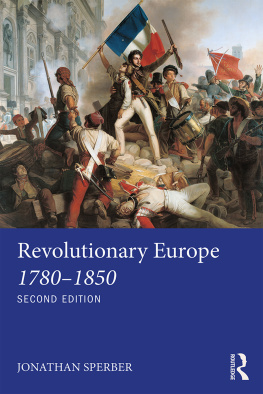
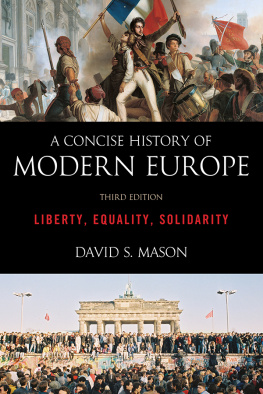
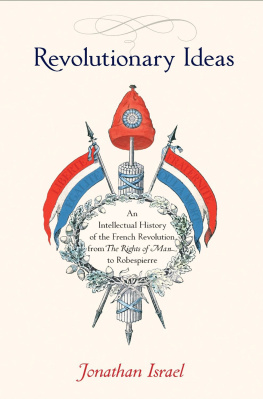
 The paper used in this publication meets the minimum requirements of
The paper used in this publication meets the minimum requirements of